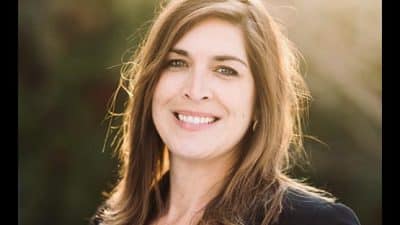Column by Krysti Mayers

“Really having to have the responsibility of your child’s education can be frustrating, you really don’t have a break,” states Kim Wright, a homeschooling mother to six children. When I asked Kim if she always thought she would homeschool, she answered with a resounding ‘No’. “I never wanted to homeschool, in fact, when I had 4 children under 5 years old at one point in my life, I used to count the years until they would be in school.”
Jackie Huemme said homeschooling was not what she was looking to do.
“Where we were living, prior to here, I felt for my older two, the school culture wasn’t the best for them.”
So the question has to be, why do we homeschool at all? I’m sure there are many mothers who don’t understand why we do what we do. Megan Doyle and Laura Spicer, who is in her first year of homeschooling, both said it allows them to tailor to the specific needs and learning differences for their children. This is the case for most of us who may have children with learning disabilities or just need a more creative learning process. Whether it is for disability, creativity, faith or flexibility, homeschooling is a commitment we have made and a decision that we feel is best for our family. That commitment is not always easy as Jackie Huemme states: “Sometimes you feel like you can’t do it all.”
Which brings us to a trend in the homeschooling culture, the “co-op”. From an outsider’s perspective, the homeschooling culture can be strange, but to see what goes on inside, it truly takes a village. Cooperative groups offer support and activities for children and parents. You may be part of a group that offers art, physical education, even classes in sewing or rocketry but the most important aspect, as a homeschooling mom, is to be around other moms who understand your daily struggles in educating your children.
“It’s great to be with other moms that could help lead the way and show the ropes,” said Noelle Davis, first-time homeschooler. Donna Armstrong, who has been homeschooling for three years, feels cooperative groups are great for her children to learn classroom skills and the basic discipline of a learning environment. Kim Wright also saw a need for her children to be around others who are homeschooled.
“We needed something social; they need to know they are not the only ones.”
One such cooperative group is a nationwide organization called Classical Conversations. It was a mother, Leigh Bortins, who created a program that focuses on teaching children classically. Tiffani Fuster is the director for Classical Conversations in Waynesboro, which now serves 20 families.
“What is nice about Classical Conversations is that this is a group that uses one set curriculum.” Tiffani states, “Unlike other cooperative groups where you may find parents using many different curriculums, we offer the one curriculum, which provides a stronger bond between us and more of an ability to be a support to each other.”
The children are tutored in history, geography, Latin, science, English and math once a week and given material to memorize.
Laura Spicer, who is new to Classical Conversations this year, states: “I really needed the structure because it’s my first year and I like the classical model.” Jackie Huemme agrees when she said she was pleasantly surprised by the organization and structure of the program. “It helps break up the week and my children have an opportunity to learn from other people.”
If you were to visit the Classical Conversations group in Waynesboro, you may be surprised to hear a group of 6- and 7-year-olds singing songs about the Roman empire, third-declension Latin noun endings and skip counting their 12s, and all with a smile. Most of the curriculum, for the younger children, is taught through music. Let’s face it, we all can sing our ABCs, but these children can also sing all of the presidents’ names as well.
Science experiments are also part of Classical Conversations. Last month, the children dissected crayfish, owl pellets and took a nature hike with Josh Palumbo, a forest manager from the Wintergreen Nature Foundation. With a table by the South River, the children searched for water bugs with special nets Josh provided. He stated, “These children were fun to teach and were definitely accustom to learning in a non-classroom setting.” .
The support, nationwide, for homeschooling has grown. There are now more families who have been given a choice, that at one time, was not always easy. Kim Wright explains, “You don’t have to be a pioneer anymore, there are a lot of resources available.” Classical Conversations is only one of many cooperative homeschool groups and organizations in Augusta county alone.
If you would like more information on Classical Conversations, please contact the First Presbyterian Church of Waynesboro’s website, www.firstpresway.com. You can also learn more about homeschooling at the Home Educators Association of Virginia, known as HEAV, at www.heav.org.










